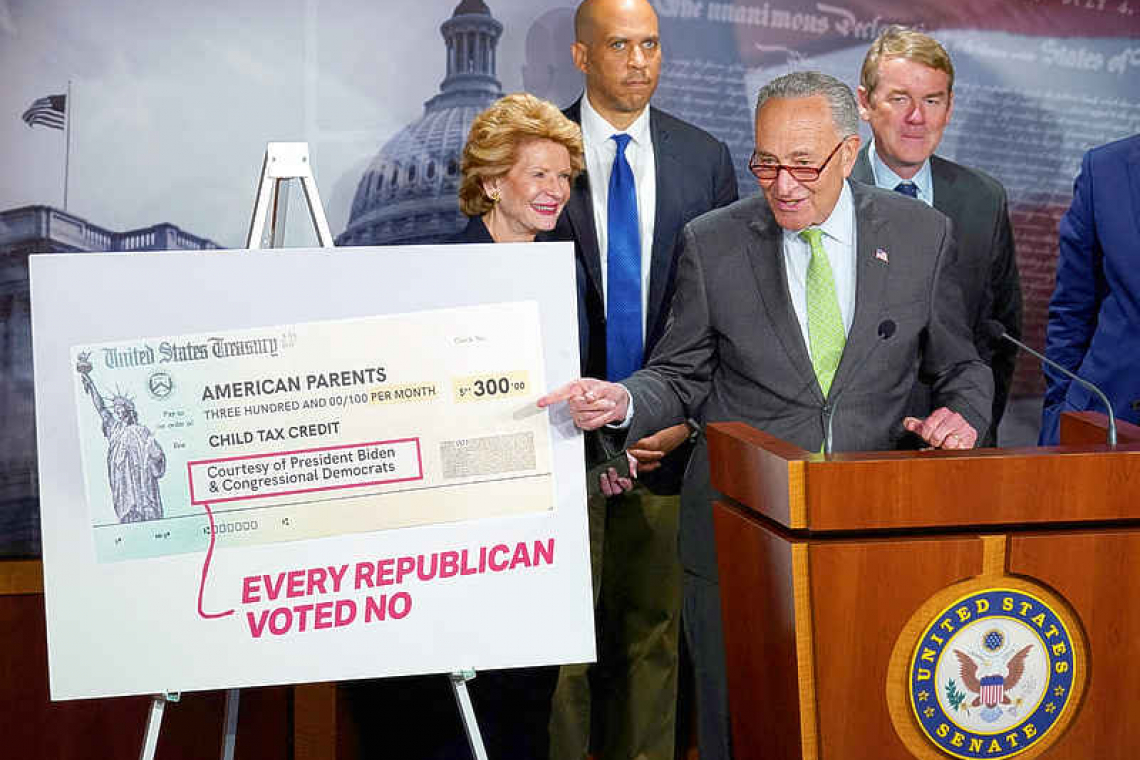WASHINGTON--The phone calls to Yvonka Hall's health nonprofit in northeastern Ohio from families begging for help feeding their children started in March 2020, and slowed down only when an expanded child tax credit came into effect last summer.
Now, Hall fears the calls will ramp up again as U.S. lawmakers quibble over renewing this programme that expired after making final payments on Dec. 15, despite having been credited with helping millions of poor children.
"It's easy when you make $200,000 a year to drag your feet on someone that may be making $10,000 a year," Hall said referring to the $174,000 annual salaries earned by members of Congress.
The expanded Child Tax Credit's monthly payments of $300 for each child under the age of 6 and $250 for children 6 to 17, lifted some 3.6 million American children out of poverty in October, according to Columbia University research. "It allowed our families to be able to live," Hall said.
The Northeast Ohio Black Health Coalition in Cleveland, where Hall is executive director, has had to start setting aside $10,000 per month to fund an ad hoc food bank since the COVID-19 pandemic began. When the expanded Child Tax Credit monthly payments kicked in, the calls to the ad hoc food bank dropped off and many families were able to move into better, more stable housing.
Hopes for a one-year extension dimmed on Sunday after moderate Democratic Senator Joe Manchin said he would not vote for President Joe Biden's $1.75 trillion "Build Back Better " programme, which includes the tax credit provision. In so doing, he joined Republicans who are in lock-step opposition to Biden's plan, instead wanting a scaled-back child tax credit.
Republicans oppose the size of the credit, as well as the aim of Democrats to attach it to the $1.75 trillion "Build Back Better" programme. Senator Lindsey Graham, the senior Senate Budget Committee Republican, described the Democrats' tax credit provision as an "inflationary bomb."
Without the expanded tax credit, the programme for poor families reverts to a lump-sum payment that families need to file a tax return to claim, and a reduction to $2,000 annually per child from up to $3,600 this year. The Treasury Department in June estimated that families with as many as 2.3 million children did not file returns in 2019 or 2020 because their incomes were below the threshold for filing.
That presents a problem for Tiquanda Newton, a 43-year-old mother of daughters aged 21, 17, seven and four. "I walk into the store and I have to figure out who gets what and who doesn't get what. The truth is, I don't get. I just make sure I stay hydrated," Newton said in a telephone interview from her home in New Haven, Connecticut.
Newton has been unemployed since the birth of her 7-year-old and has guardianship of her eldest daughter, who has a life-long disability. A broken heater in her car goes unrepaired and she despairs over the rising costs of basics like food and school supplies.
"These babies are growing quicker than we can even buy clothes," she said.
Despite the breakdown in negotiations, "The fight to pass Build Back Better is not over," said House Appropriations Chair Rosa DeLauro, a leading advocate for maintaining the expanded tax credit. Already, there have been hints Democrats could move to shrink the $1.75 billion plan to win support from Manchin and Democratic Senator Krysten Sinema, who together oppose various parts of the bill.







